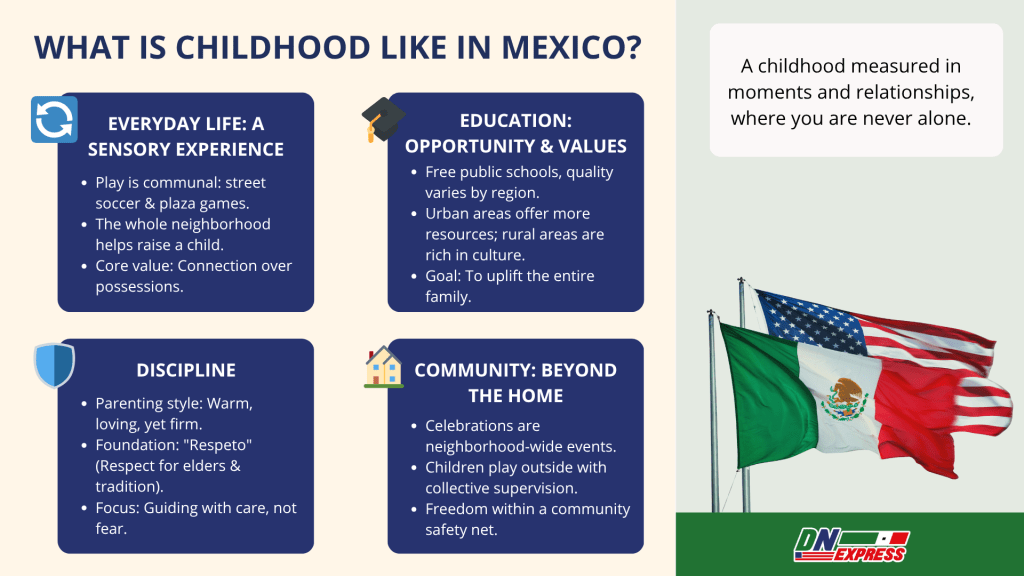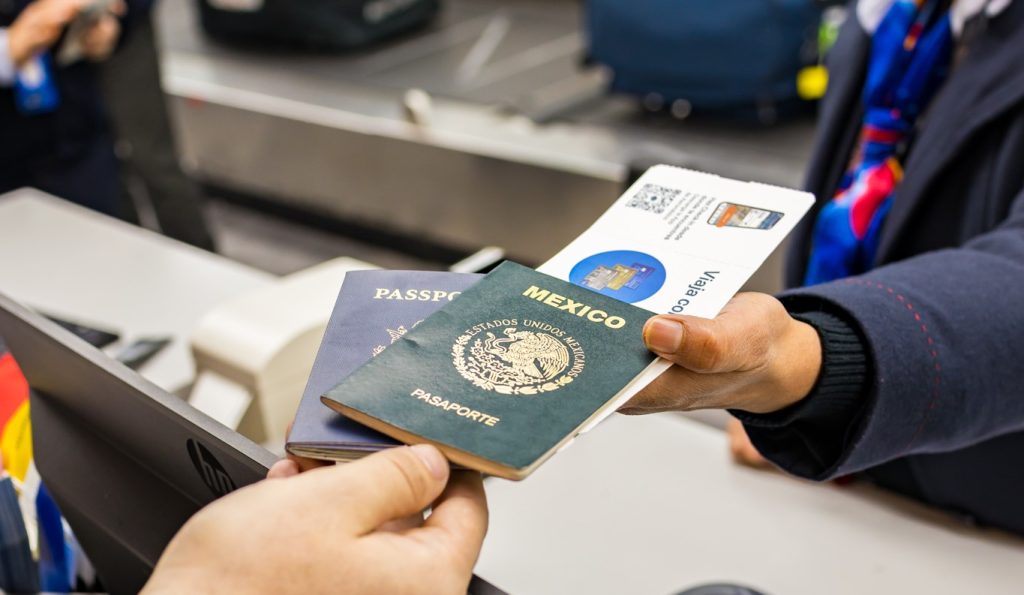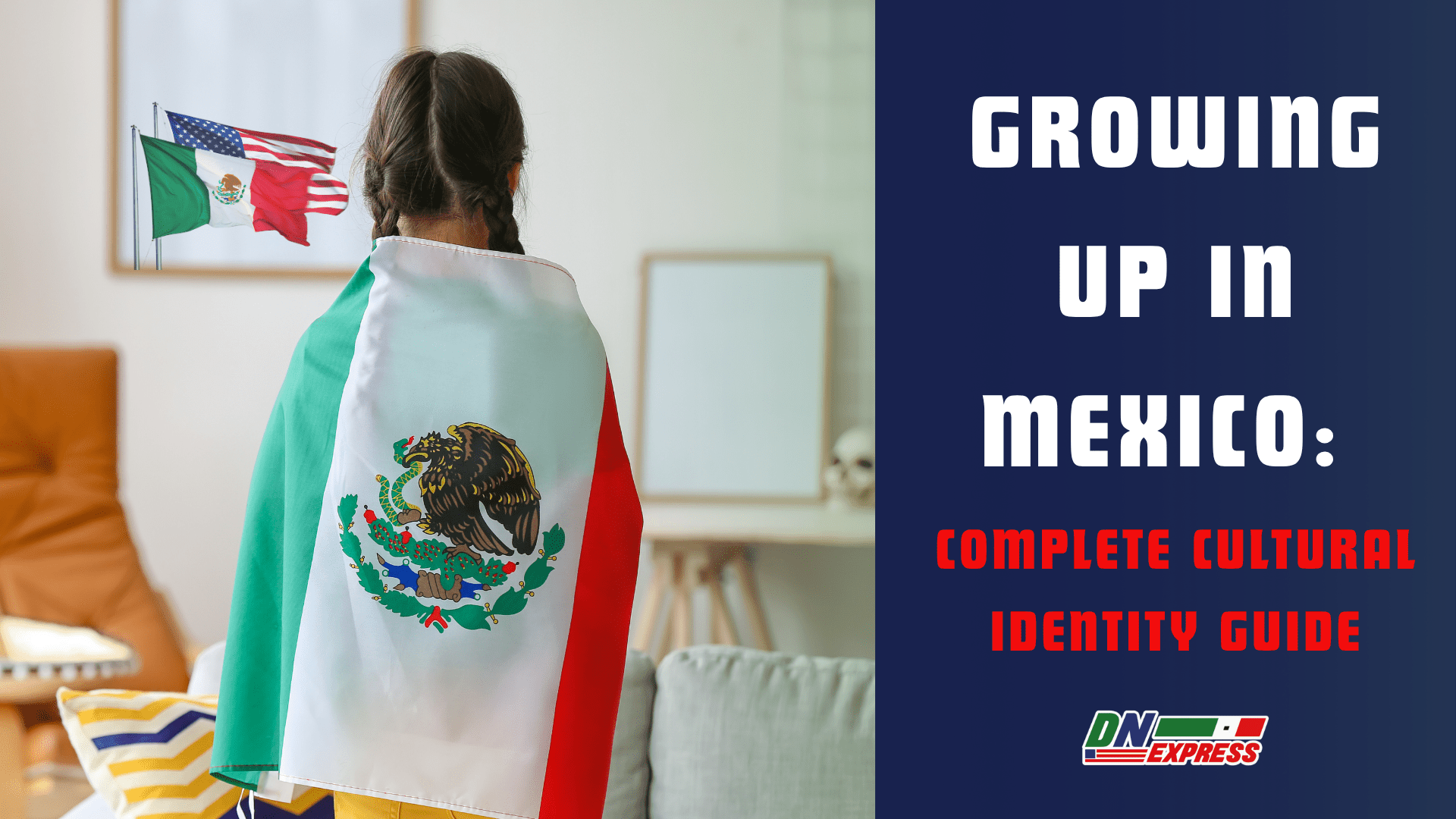Growing up in Mexico means waking up to the sound of street vendors, sharing breakfast with neighbors, and learning that family and faith come before everything else.
It's a childhood defined by color, warmth, and resilience, where community is family, and every moment feels alive.
Whether you were raised in Mexico, visited family during summers, or are rediscovering your roots as an adult, the experience shapes who you are. It teaches balance between tradition and change, between joy and struggle, and builds an identity that's proudly Mexican no matter where you live.
In this article, you'll learn what everyday life in Mexico looks like, how it compares across generations and backgrounds, and why so many Mexican-Americans are now reconnecting with their heritage.
You'll also discover how to reclaim your Mexican citizenship or pass it on to your children, even if the consulate told you it's not possible.
If you want the full story, from the laughter of childhood fiestas to the legal steps for recovering your nationality, keep reading.
Everyday Life: What Is Childhood Like in Mexico?
Growing up in Mexico is a sensory experience, full of laughter, music, and the smell of homemade food drifting through open windows.
Children play soccer in the streets, chase each other around plazas, and grow up surrounded by extended family, neighbors, and lifelong friends who become like relatives.
In most neighborhoods, the community becomes part of a child's upbringing. Abuelas keep watch from balconies, shopkeepers greet kids by name, and everyone knows whose birthday it is that week.
Childhood in Mexico teaches belonging through connection, not through possessions.
Education: Opportunity and Inequality
Public education in Mexico is free and accessible, but the quality varies by region.
Urban areas often offer better resources, extracurricular programs, and bilingual schools that prepare students for global opportunities. In rural towns, schools can struggle with supplies or technology, but children grow up grounded in culture and practicality.
Education is valued deeply, often seen as a bridge to a better future, not for one child alone, but for an entire family.
Discipline: A Balance of Love and Respect
Mexican parenting is warm yet firm.
Parents lead with affection, but “respeto,” respect for elders and others, is a nonnegotiable lesson taught early on. A child learns to greet adults politely, help at home, and honor family traditions.
The focus is on community harmony, not strictness.
What is Mexican parenting like?
Mexican parents are protective, emotional, and deeply involved. Meals are shared, advice is constant, and discipline is an act of care, guiding children toward responsibility, not fear.
Community: Childhood Beyond the Home
Birthday parties are not private events; they're neighborhood celebrations.
Kids play outside until sunset, and every adult feels responsible for every child's safety. These communal experiences create a sense of shared responsibility and freedom that's increasingly rare in other parts of the world.
Is Mexico OK for kids?
Yes. Families describe it as safe when children are taught street awareness and respect for others. Kids learn independence early, but within the safety net of a caring community.
In Mexico, childhood is measured by moments: the sound of laughter echoing through the block, the smell of tamales on a Sunday, and the sense that wherever you go, you're never truly alone.

The Heart of Mexico: Love, Struggle, and Ingenuity
To understand Mexico, you have to see its people: hardworking, creative, and endlessly resilient.
Life here can be challenging, but it's full. Families find joy in simple things: laughter after a long day, a shared meal under a patio roof, or a song echoing through the street on a warm evening.
Resilience: The Mexican Hustle
Even when resources are limited, Mexicans create opportunities through ingenuity.
You'll find entire families running taco stands, kids helping in corner shops, and artisans selling handwoven crafts in the plazas. From shoeshiners to street performers, every job carries pride.
Survival happens with dignity and creativity.
Food: Every Dish Tells a Story
Mexican cuisine carries memory in every flavor.
Meals unite generations, and every dish speaks a family language. Tacos al pastor in Mexico City, mole in Puebla, or cochinita pibil in Yucatán; every region adds its own rhythm to the national table.
Eating together is sacred. It's where stories, lessons, and jokes are passed down.
Is $1000 USD a good salary in Mexico?
In many regions, yes. Outside Mexico City, $1,000 USD per month can provide a comfortable, middle-class lifestyle with room for savings.
However, it provides stability rather than wealth. Families stretch every peso wisely, proving that quality of life depends on community and balance rather than on income alone.
Faith and Celebration: The Soul of Daily Life
Religion remains at the center of identity for many families.
Traditions like Día de la Virgen de Guadalupe and Día de los Muertos are moments of gratitude, remembrance, and renewal. Even for those who are not religious, these celebrations tie generations together, blending ancient Indigenous rituals with modern devotion.
Mexican life celebrates both joy and pain. A funeral can have music, and a hardship can end with laughter.
This emotional duality makes the culture so alive.
Is Mexico a good place to raise a family?
Absolutely. The country is culturally rich, community-oriented, and built on family values. But it also requires patience with slower systems, modest wages, and flexible schedules.
Families who adapt to the rhythm of life here discover a deep sense of belonging and peace that money can't buy.
In Mexico, love is present even when it's imperfect. Struggle is shared, not shameful.
And no matter where you come from, the country's ingenuity reminds you: there's always a way forward.
Challenges of Growing Up in Mexico
Growing up in Mexico teaches resilience, but it also reveals the country's contrasts.
Behind the color and warmth are the challenges families face every day: uneven opportunities, gender expectations, and a system that often relies on community rather than on government support. These challenges don't define Mexico, but they do shape the strength of its people.
Economic Gaps: Making Ends Meet with Creativity
Many families live paycheck to paycheck, especially in rural and working-class urban areas.
Financial privilege is rare, but creativity fills the gaps. Parents sell food from home, teenagers help with small businesses, and communities trade favors instead of money.
The economy may be fragile, but solidarity is strong. Families find ways to make life beautiful even when resources are scarce.
Machismo & Gender Roles: Tradition in Transition
Gender expectations still influence everyday life.
In some households, men are seen as providers while women manage the home. Yet, a powerful cultural shift is happening, especially in cities.
Women are pursuing higher education, leading businesses, and challenging stereotypes. Feminism in Mexico is public, visible, and growing stronger each year.
Safety & Noise: The Reality of Urban Life
In large cities like Mexico City, Guadalajara, or Monterrey, safety and chaos coexist.
Street noise, fireworks, and traffic are constant companions. Crime exists, but so do neighborhoods that self-organize for protection, neighbors looking out for one another, sharing information, and ensuring children play safely outside.
This is community resilience in action.
Education Inequality: Uneven Access, Equal Determination
Education in Mexico is free at all levels, from primary school through public universities, but quality differs dramatically by region.
Is education free in Mexico?
Yes, but rural schools often lack resources and funding, while private or bilingual institutions in cities offer stronger programs. Even so, Mexican students grow up valuing education as a means of progress, often becoming the first in their families to graduate.
Legal Hurdles: Navigating Complex Bureaucracy
Citizenship and residency laws can be confusing, especially for those returning to Mexico or applying from abroad.
Is the regularization program still available in Mexico?
Yes, but eligibility and procedures vary by case.
We help families confirm their status, gather the right documents, and process legal residency or nationality without the frustration of consulate delays or misinformation.
Life in Mexico can be challenging, but that's what makes it meaningful.
Every challenge teaches adaptability. Every obstacle strengthens community ties.
And for those reconnecting with their roots, these realities reveal not only what it means to grow up in Mexico, but what it means to belong to it.

What It Means to “Come Home”: Rediscovering Mexican Identity
For many people, returning to Mexico, or moving there for the first time, goes beyond changing countries.
It's about coming home to yourself. It's a reconnection that goes far beyond geography; it's emotional, cultural, and deeply personal.
Adults who grew up abroad often describe this return as an awakening. Suddenly, the stories their parents told, the strict values they once resisted, humility, humor, hard work, all begin to make sense.
They realize their parents were protecting identity, not simply preserving traditions.
In Mexico, the chaos itself becomes part of the healing.
The noise, the color, the spontaneity, it all teaches flexibility and gratitude. Reddit users often call it “beautiful disorder,” a reminder that life doesn't have to be perfect to be full.
Is Mexico safe for foreigners or returnees?
Yes. Most regions are safe when you live like a local, respecting community etiquette, building trust, and staying informed.
Mexico's warmth lies in its people, and returnees often find safety through belonging rather than isolation.
Still, coming home can present challenges.
Why do some expats leave Mexico?
Reasons include culture shock, slow bureaucracy, or the constant background noise of city life. Some struggle to adjust to how things work, or don't work, here.
Yet even those who leave admit they miss the connection, the smiles of strangers, and the feeling of being part of something bigger than themselves.
Rediscovering Mexico goes beyond reclaiming citizenship or learning the language.
It's about remembering that identity doesn't disappear with distance. It lives in how you greet people, share meals, and laugh even when life gets messy.
Coming home to Mexico, whether for a visit or forever, means remembering that you were never truly gone.
Taking Action: How to Reconnect With Mexico Legally & Emotionally
Reconnecting with Mexico is both a sentimental journey and a legal right.
Whether you want to register your children, correct a birth certificate, or finally claim your dual nationality, your connection to Mexico extends beyond heritage. It's citizenship waiting to be recognized.
But for many families, the process feels impossible.
Long waits at consulates, missing documents, and unclear instructions can turn an exciting goal into a stressful maze. That's where Doble Nacionalidad Express (DNExpress) changes everything.
Reclaim their Mexican identity without visiting a consulate, without confusion, and without rejection.
Their licensed attorneys handle every case personally, making the process fast, secure, and legitimate. No middlemen, no outsourcing, no false promises.
Why Choose Doble Nacionalidad Express

Handled by Licensed Mexican Attorneys
Every case is reviewed by qualified legal professionals who understand both Mexican and U.S. systems, ensuring your process is 100% compliant and legally valid.
No Consulate Visits Required
Everything is completed remotely, with full transparency. You'll save months, sometimes years, of waiting by skipping unnecessary in-person appointments.
Affordable, Transparent Pricing
DNExpress was built for working families. No inflated fees, no surprise costs.
Payment plans are available, and every quote is final.
Specialists in Difficult or Rejected Cases
Were you told “no” by a consulate or lawyer? DNExpress specializes in turning denials into approvals. Their team finds legal solutions where others give up.
Coverage Across the U.S. and Mexico
With offices in both countries, DNExpress can locate records, resolve local registry issues, and handle the entire process from start to finish, no matter where you live.
The Downside of Doing It Yourself
Applying on your own might seem simple until a small mistake costs you months or even years.
A single name mismatch between your documents can lead to rejection.
Missing apostilles or translations can reset your entire application.
Many consulates still use outdated procedures, leaving applicants in limbo.
DNExpress clients avoid these pitfalls because every step is reviewed and filed correctly by professionals who know how to work directly with Mexican authorities.
Reclaiming your Mexican nationality is about restoring your family's story, not paperwork alone.
Con DNExpress, you can do it legally, remotely, and confidently, honoring your heritage while securing your rights for generations to come.
👉 Schedule a Free Case Review today and take the first step toward becoming officially recognized as who you've always been: Mexican at heart, and now on paper too.
Growing Up Mexican, Anywhere You Are

Growing up in Mexico extends beyond a place.
It's a way of living. You find it in how you greet your neighbors, share food with family, and carry your values wherever life takes you.
Being Mexican is about connection: to your people, your history, and the deep sense of pride that comes from knowing where you belong.
Whether you were raised in Mexico, born in the U.S. to Mexican parents, or rediscovering your heritage as an adult, that identity never leaves you.
It lives in your memories, your family's stories, and your right to reclaim your nationality.
With our help, reclaiming your Mexican citizenship or helping your children inherit theirs doesn't have to be complicated.
Their trusted binational legal team handles everything remotely, legally, securely, and without consulate visits, so you can reconnect with your roots with confidence and peace of mind.
👉Schedule a Free Case Review with Doble Nacionalidad Express today.
Let our binational attorneys help you secure your Mexican nationality, without the consulate, confusion, or high fees, and rediscover what it truly means to grow up Mexican, anywhere you are.



